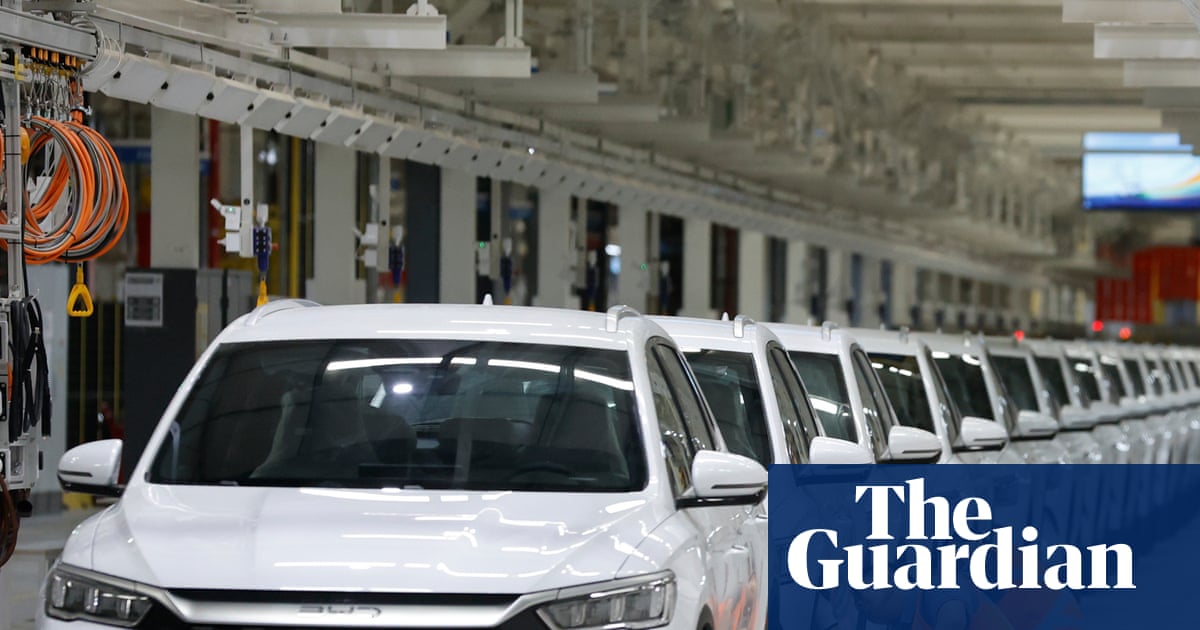If it were not clear already, the biggest far-right protest in UK history is a reminder that the battle for a fair and habitable planet cannot be fought solely in the silos of science or environmentalism.
That may be a source of dismay for anyone who still believed the argument for a cleaner, safer, more equitable future can be won by reason alone. But there is also an upside to the alarming scenes recently witnessed in London: the alliance between billionaires, thugs and other opponents of change has come out of the shadows.
The global environmental context is key to understanding what is happening in the UK, the US and other countries where the far right is becoming more vocal, violent and lavishly funded than at any time in memory. But that climatic analysis has been lost in much of the coverage of this phenomenon, which has focused on the narrow, local concerns that provided the spark but not the fuel.
To step back to my distant vantage point in the Brazilian Amazon, that is as shortsighted as blaming the record outbreak of wildfires here over the past 12 months solely on those who lit the matches, while ignoring the more significant fact that decades of drought and rising heat, particularly in the past two years, have left the rainforest more flammable than at any time in history.
Biologists tell me that when trees get too hot or too stressed for prolonged periods, their primary coping mechanism is to shut down their periphery. They shed leaves so that any remaining moisture can be cycled inside the trunk and branches. This can sustain some individual species for a short time, but only at the risk of their long-term health and the resilience of the forest.
Shedding leaves weakens a tree’s ability to interact with the outside world. It loses capacity to cycle water and carbon. It also opens up the forest canopy, allowing more sunlight and heat to reach the understory and suck the moisture out of the soil and the fallen leaves. This degrades the ecosystem to still more stressful levels, and turns normally damp undergrowth into a tinderbox. The only hope for salvation is rain.
When human societies get too hot or too stressed for prolonged periods, we are theoretically smart enough to come together and invent a range of survival techniques and technologies. Recent history, however, suggests that the first instinct of many individuals is to also shut down their periphery – “close the borders”, “build walls”, “impose tariffs”, “stop the boats” – in an attempt to conserve jobs, food and money for themselves. Stirring up hatred against foreigners is a typical manifestation of this logic, which in turn risks becoming eco-fascistic.
A moment’s consideration reveals this to be self-defeating. When economies cease cycling labour and goods, then supply declines and prices rise. When societies stop exchanging ideas and support, they become more exposed and less likely to find solutions to the bigger problems that are at the root of their stress. Left isolated for too long, they wither and die. Or self-combust.
Unlike for trees, movement is one of the most effective survival strategies available for humans, which shows the analogy goes only so far. But both forests and societies are under more stress as a result of the climate crisis. And both are becoming more combustible, which is why the incendiary rhetoric of the US billionaire Elon Musk is not just reprehensible, but sinister.
As I have written elsewhere, extreme weather and extreme politics are intertwined. First, because the latter feeds off the fear and uncertainty caused by the former. Second, because global climate action against big emitters has provoked resistance by billionaire individuals, companies and petrostates, who are pouring money into campaigns to deny, delay and distract. And third, because many of the ultra-rich are indeed apocalyptic in their visions of the future but they have given up on global solutions and would rather invest in their individual doomsday bunkers.
Viewed in this light, the rabble-rousing of far-right demagogues makes perfect – if grotesque – sense. Donald Trump publicly declares the climate crisis a “huge hoax”, which plays well with his oil company donors. Yet many of his actions as president are consistent with the most apocalyptic visions of a hothouse Earth. He has threatened to annex Canada and Greenland, two regions of the world likely to escape the worst effects of global heating. He has closed down or defunded many of the US government’s climate science programmes, which will keep the public in the dark about what is happening. And he has ramped up internal security forces, which are increasingly criminalising climate protests. In deed, if not in word, his climate denial appears either opportunistic or downright fake.
The great fear of Trump and his billionaire backers in the petrochemical and infotech industries appears to be that humanity could come together to find a solution to shared problems. For them, this would mean regulation, stagnation and higher taxes on the rich.
This helps to explain what is happening the UK, where a foreign billionaire – Musk – risks stirring up hatred against foreign asylum seekers. Speaking by video link at the “unite the kingdom” rally earlier this month, the American told the London crowd: “Whether you choose violence or not, violence is coming to you. You either fight back or you die, that’s the truth, I think.”
It was also Musk who paid the legal fees of the far-right anti-immigrant campaigner Stephen Yaxley-Lennon – who goes by the name Tommy Robinson – and then used his X social media platform to raise the public profile of the founder of the race-baiting English Defence League. It need not always be overt. X is also among the social media that ramps up clips of inter-racial conflict before major elections. The constant repetition of images that we live in a climate of violence is enough to stir up fear, hostility and support for “strong leaders”.
The motive appears to be to divide and distract, particularly when it comes to the polycrisis of climate, nature and inequality. Billionaires such as Musk have an outsized responsibility for these existential global problems, prompting growing criticism from the pope and anti-poverty NGOs including Oxfam.
after newsletter promotion
This is a shame as Musk was once a champion of climate action. But the intellectual ethos of Silicon Valley has shifted as tech billionaires feel increasingly under pressure for their eye-popping accumulation of wealth and carbon emissions. Some build space rockets, others invest in doomsday bunkers or mega yachts – all of which can double as escape pods if the climate gets too hot or the masses too rowdy. Increasingly, they are also funding social media sites, news companies, lobby groups and far-right politicians to resist any suggestion that the global economy may have stretched beyond the carrying capacity of the Earth.
Take Musk’s business partner Peter Thiel, the Silicon Valley co-founder of PayPal, Palantir and Founders Fund. He was credited as the “kingmaker” for Trump’s first election victory and has more recently been described as the “intellectual architect of Silicon Valley’s contemporary ethos”. In an apocalyptic interview with the New York Times this summer, he railed against the “peace and safetyism” of the past 50 years, equated the climate campaigner Greta Thunberg to the antichrist and warned that Europe was in the grip of an environmentalist ideology, which he called a “green thing”.

The talk of Armageddon is nothing new in American politics, but – given the worsening climate and extinction context – it adds to the feeling that the debates about energy transition and ecological limits may be entering an end game.
Optimists see the rants of Trump, Musk and Thiel as the dying howls of a system that has outlived its usefulness. Outside the US and UK, there are signs of change and resistance, particularly in the global south. China’s huge investments in renewable power are expected to very soon start driving the world’s carbon emissions on a downward path, which will strand a great deal of oil industry assets. The Brazilian government and supreme court have defended its forests and democracy with rigour, punishing illegal land grabs, locking up its former leader Jair Bolsonaro for plotting a coup and successfully facing down Musk over compliance with local laws. Throughout the world, a huge majority of people want their governments to take stronger action on the climate crisis, as the 89% project shows.
Here in the forest, it is obvious that communal action is essential. As individuals, there is simply no viable path to survival. Single trees might resist drought a little longer by shedding leaves and shutting down some of their interactions with the outside world. But to recover and thrive they ultimately need rain and nutrition – which can only come from healthy ecosystems. The same is true for humans. Whatever the likes of Musk, Thiel and Trump might want people to think, the future depends on interdependence.
Rather than whipping up flames, responsible global citizens should be dousing down embers. If you want democracy, you have to defend it. If you want a healthy environment, you have to stand up for it. That has never been more true than now, though this historical lesson seems to be better understood today in the Amazon rainforest than in the home of the mother of parliaments, or the self-proclaimed Land of the Free.

 3 months ago
85
3 months ago
85

















































